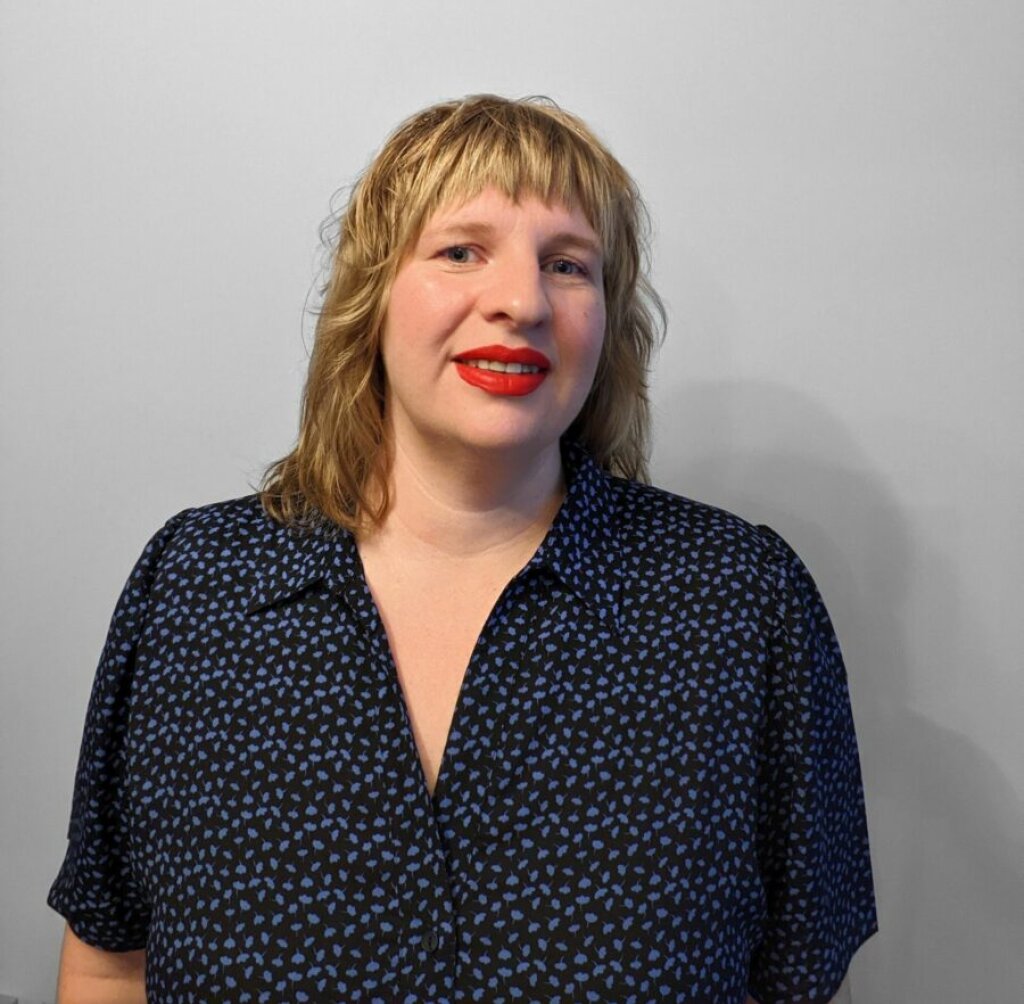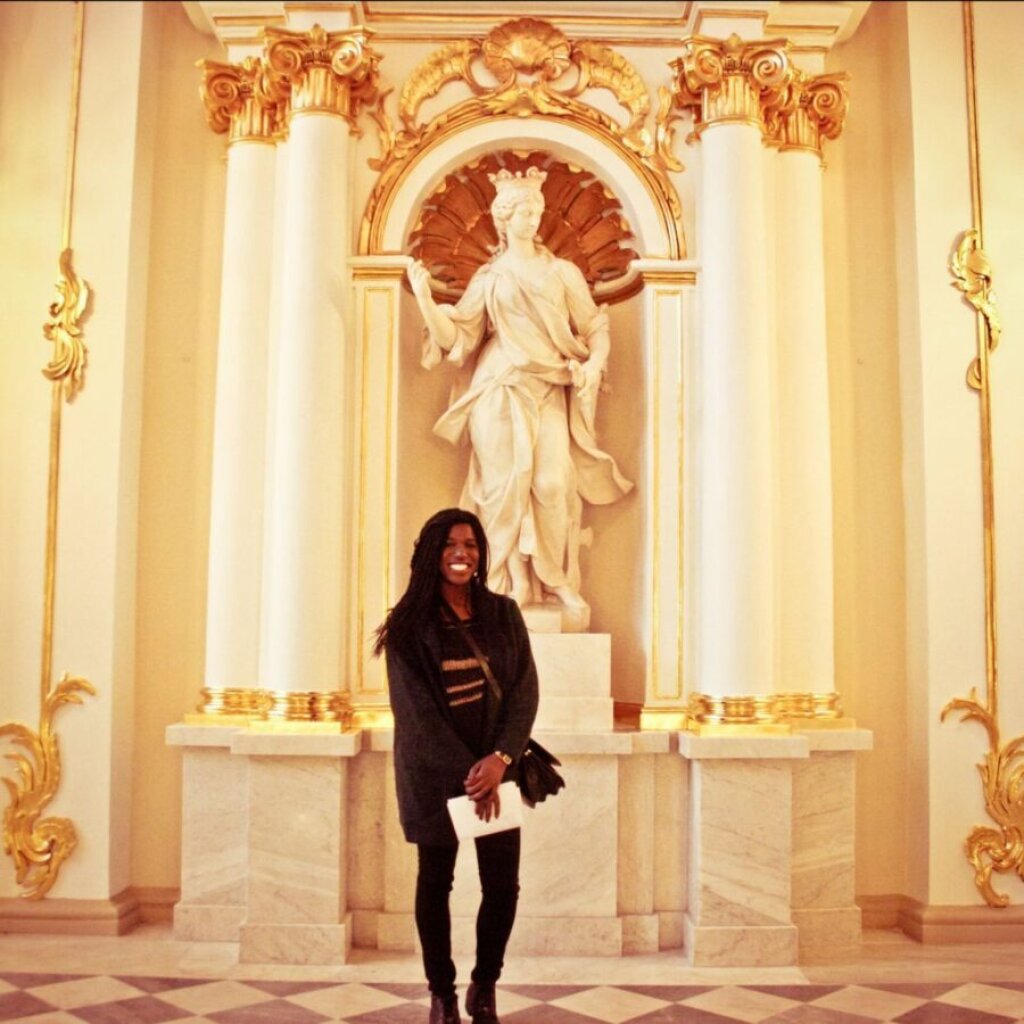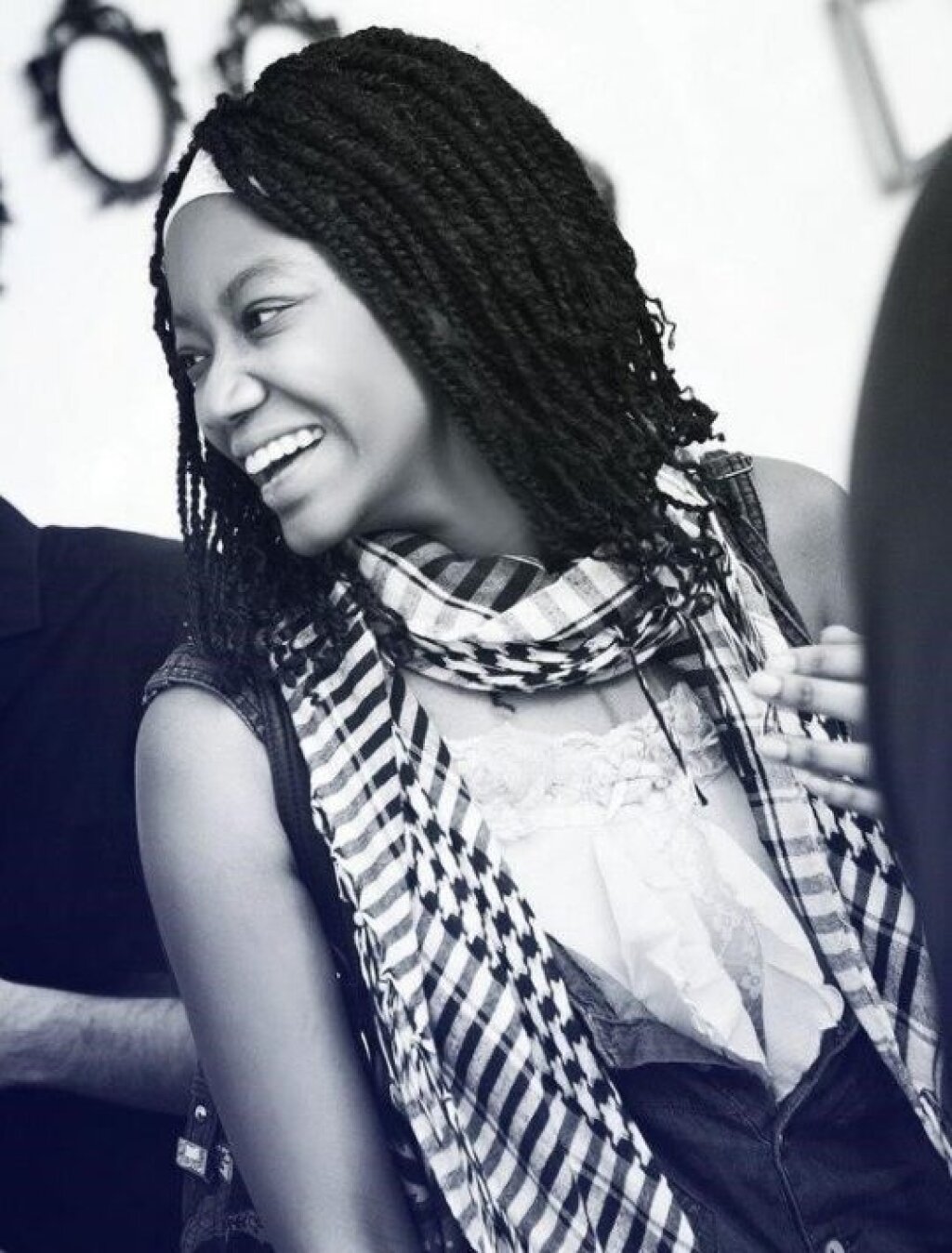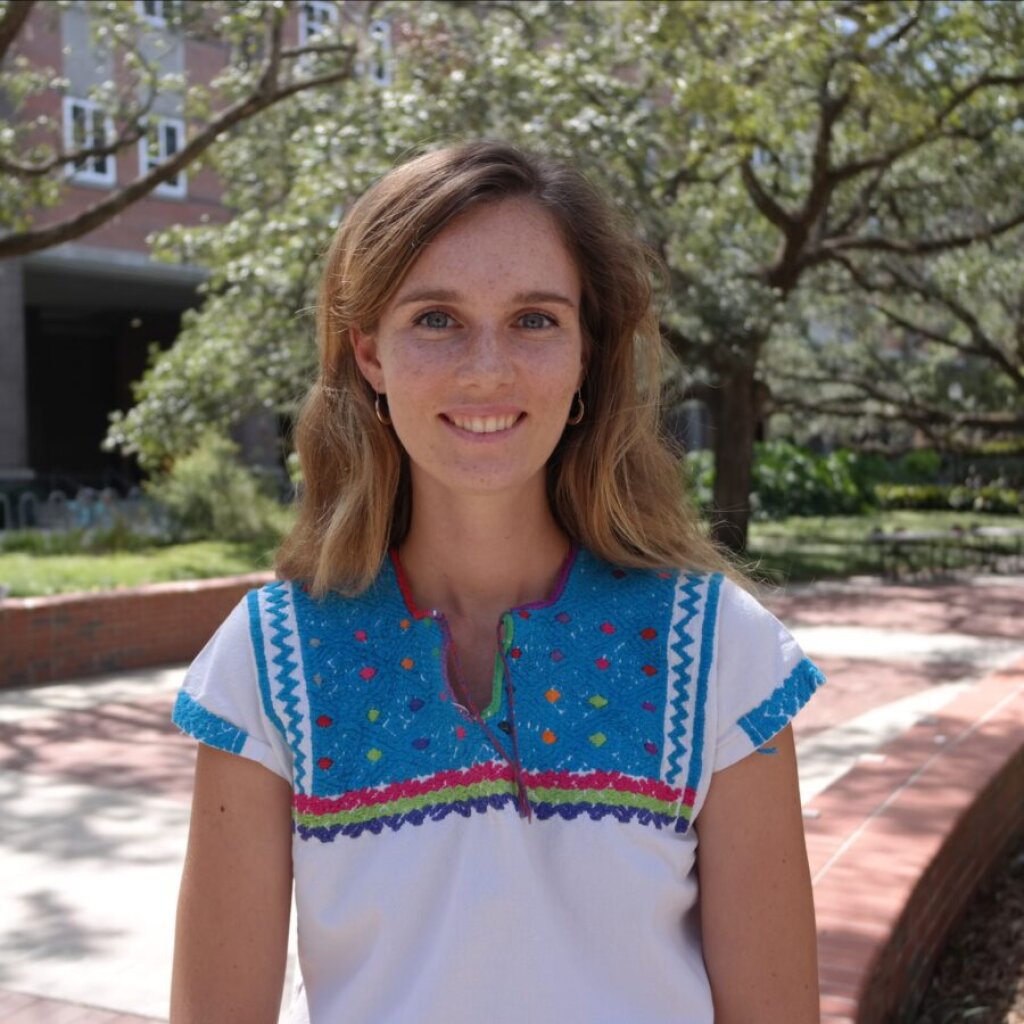To all:
Greetings from New York City and 19 University Place! We are so excited to be back on campus again with all of our affiliated faculty, students, and fellows, and look forward to welcoming the general public to our space soon for the first event of the semester on September 13 (see more details below)!
Last year was an especially busy one, during which we got the chance to host some of our largest events yet thanks to the presence of our first ever Distinguished Journalist in Residence, Yevgenia Albats, whose interview series welcomed speakers such as Fiona Hill, Anne Applebaum, Masha Gessen, and many others. We are so grateful to Dr. Albats for her tremendous efforts, and wish her well as she moves on to her new position as the Walter Shorenstein Media and Democracy Fellow at the Harvard Kennedy School Shorenstein Center.
We want to express our gratitude to our audience members and affiliates for their continued engagement and support. It was wonderful to be able to welcome the public back to our space and engage in critical conversations in such great company, and we are looking forward to continuing this engagement.
In light of the ongoing unjust Russian invasion of Ukraine, it remains extremely important to us that our programming continues to provide high quality information from trusted experts to all those who are looking to remain informed. We are proud to support scholars from all over the country and the world who are covering all aspects of the war, and continue to prioritize this access to knowledge. We hope you will join us at our many timely upcoming events, and encourage you to take advantage of our YouTube channel, where you can watch all past Jordan Center lectures on this topic.
We have another full schedule of events in store for this Fall. We are very excited to be kicking off the semester on September 13th at 12 pm with our first Russia Public Policy Series seminar of the semester, “War on Ukraine: The Counteroffensive and What’s Next,”featuring a panel of distinguished academics, including Volodymyr Dubovyk, Alexandra Chinchilla, and more TBA. We are very happy to be continuing the Russia Public Policy series, organized in cooperation with Columbia’s Harriman Institute and made possible by Carnegie Corporation of New York, throughout this upcoming academic year. Keep your eyes peeled for announcements regarding future events, which will take place monthly.
In total, the Jordan Center will host (at least!) 26 events this semester, including:
“Russia’s Muslims at War” with Robert Crews, September 18 @ 4 pm
“Where Asia Meets Russia: Borderlands, Minorities, and Overturning the Colonization Trope” with Alyssa Park, September 25 @ 4 pm
“Learning to lose: A conversation and poetry reading with Iryna Shuvalova,” September 27 @ 5 pm
“Do they know (when) it’s Christmas? Changing calendars in Ukraine and the historical origins of the contemporary geopolitics of Christian Orthodoxy” with Anastassios Anastassiadis, October 5 @ 3 pm
“Buriat Studies: New Perspectives” (invite only conference), organized by Professor Tatiana Linkhoeva, October 6-7
“Tamizdat as a Literary Practice and Political Institution of the Cold War Era” with Yasha Klots, October 17 @ 4 pm
“Post-Invasion Russia: A Stable New Order Or A Collapse Waiting To Happen?” with Volodymyr Ishchenko, Ilya Matveev, and Oleg Zhuravlev, Moderated by Anastasiia Kalk, November 1 (time TBA)
“Putin’s Political Rhetoric on the War Against Ukraine” with Riccardo Nicolosi, December 5 @ 4 pm
… and much more!
We are very happy to share that our Short Term Visiting Fellowship program, Visiting Scholars program, and Postdoctoral Fellowship program will all run this year. We are once again very grateful to be able to host so many members of our community in one place. This year’s cohort of Postdocs are:
Margarita Kuleva, December 2022-November 2023

Returning for her second semester at the Jordan Center, Dr. Kuleva is a sociologist of culture, interested in exploring social inequalities in the art world and cultural industries in Russia and the UK. Primarily, she works as an ethnographer to discover the ‘behind the scenes’ of cultural institutions to give greater visibility to the invisible workers of culture. Kuleva received her PhD in art sociology from the National Research University Higher School of Economics in collaboration with Bielefeld University in 2019. The dissertation entailed a comparative study of the careers and professional identities of young cultural workers in visual art sectors in Moscow, St Petersburg and London. Based on more than 70 in-depth interviews, it was one of the first systematic studies of post-Soviet creative labor. Some findings from these studies were recently presented in journal publications including Cultural Studies (2018) and International Journal of Cultural Studies (2019), as well as European Journal of Cultural Studies(2022). Her current research project, The Right to Be Creative, focuses on hidden political struggles at contemporary Russian cultural institutions. Dr. Kuleva previously worked at National Research University Higher School of Economics as an Associate Professor and held the position of Chair of the Department of Design and Contemporary Art in St Petersburg. In 2019-2020, Kuleva was a fellow of the Center for Art, Design and Social Research (Boston, Massachusetts). As a researcher, artist, and curator, she has collaborated with a number of Russian and international cultural institutions, including Manifesta Biennale, Pushkin House in London, Boston Center for the Arts, Garage MoCA, Goethe Institute, Helsinki Art Museum, Street Art Museum, Ural Industrial Biennale and New Holland St. Petersburg.
Mina Magda, September 2023-August 2024

Dr. Magda is a scholar of Russian literature, visual art, and performance spanning the long nineteenth century and early Soviet period. Her interdisciplinary research centers politics of racial representation, gendered labor, and colonial culture. Becoming Modern: Negrophilia, Russophilia, and the Making of Modernist Paris, her current book project, examines the aesthetic interplay among modernists of the Russian and Black diasporas in Paris—namely, Josephine Baker and the Ballets Russes—the visual technologies of race-making that framed their careers, and their shared imbrication in the histories of celebrity and coloniality. She demonstrates how the comparison between Baker and the Ballets Russes helps us think of racial formation as a network of political, aesthetic, and commercial negotiations through which we can examine the limits and relational contingencies of racial self-determination, and ask at what cost conceptions of modern subjecthood were afforded. Magda received her PhD in Slavic Languages and Literatures at Yale University in 2023 and holds an MA in Russian and Slavic Studies from New York University. Her doctoral dissertation was supported by fellowships at the Houghton Library and Beinecke Library and the MacMillan International Dissertation Research Fellowship.
Christy Monet (Brandly), September 2023-August 2024

Dr. Monet Brandly is a political scientist and Slavicist specializing in intellectual history as viewed from the perspectives of the history of political thought and literary studies. She conducts research and teaches in the fields of political theory, literature, and history, with a focus on Russophone political thought and its engagements with empire, liberalism, and American culture over the last two centuries. She earned her Ph.D. in both Political Science and Slavic Languages and Literatures from the University of Chicago in 2023. She also holds an M.A. in International Relations from the University of Chicago, as well as a B.A. in Political Science from St. Mary’s College of Maryland. Her current book project on the family novel in Imperial Russia explores the ways in which the development of liberal thought in 19th-century Russia created space for the reimagining of both the form of the family and its role in the political—a reimagining in stark contrast to the eventual removal of the family from the political in Western liberal thought. This research is based, in part, on research undertaken in both Moscow and St. Petersburg in the archives of the Russian State Library and the Pushkin House, respectively. Her doctoral dissertation and current book project have been supported by an Alfa Fellowship, a University of Chicago Harper Dissertation-Year Fellowship, an Institute for Humane Studies Publication Accelerator Grant, and a Princeton University Press Book Proposal Grant. This is her first post-doctoral academic appointment, although she previously worked for the Moscow-based publishing house Novoe literaturnoe obozrenie (NLO) as an editorial assistant and translator during her graduate studies.
Anastasiia Vlasenko, September 2022-August 2024

Returning for her second year at the Jordan Center, Dr. Vlasenko is a postdoctoral fellow who studies electoral politics and democratization with specialization in politics of Ukraine and Russia. Her monograph project, The Electoral Effects of Decentralization: Evidence from Ukraine investigates how decentralization reform affects electoral mobilization and diversity in a weakly institutionalized democracy. Vlasenko is particularly interested in transitional period reforms, propaganda, legislative politics, and forecasting. Her research has been published in the Journal of Politics. She received her Ph.D. from the Department of Political Science at Florida State University in 2022, M.A. in Political Science from Florida State University in 2018, M.A. in International Relations from New York University in 2016, and M.Sc. in European Affairs from Lund University in 2013, and B.A. in Political Science from the National University of Kyiv-Mohyla Academy in 2011. In 2020-2021, she worked at Hertie School in Berlin as a visiting researcher. In 2014-2016, Vlasenko was a Fulbright scholar at New York University. At Florida State University, she taught courses on comparative politics and post-Soviet studies.
—
If you haven’t yet spent time at the Jordan Center, it’s never too early to start thinking about our 2024-2025 fellowship opportunities! Visit our website to learn more, and feel free to reach out with any questions at jordan.russia.center@nyu.edu.
Finally, I would like to remind everyone that The Jordan Center Blog is always looking for pitches and submissions! Professor Maya Vinokour, blog editor, can be contacted directly at mvv221@nyu.edu. We welcome work on topics from all fields of academic inquiry relating to Russia.
If you appreciate the Jordan Center’s work and programming, online and in-person, consider making a financial contribution to help support our lectures, panels, fellowship programs, blog, and more. Any amount can help us further our goal of promoting awareness and understanding of Russia’s past, present, and future, in all its disciplinary and cultural manifestations. Details can be found on our website, and as always feel free to reach out to me directly at joshua.tucker@nyu.edu.
I hope you all have a wonderful fall, and I look forward to seeing you at the Jordan Center!
Best,
Director
